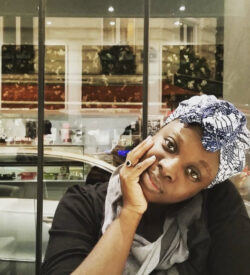Knowledge, skills and perspectives to challenge oppression and create spaces of solidarity.
Our organising work sits within a global and historical system of interlinking forms of oppression. These shape the material, relational, and psychological conditions that influence every one of us. Unfortunately, as many of us will have witnessed, this means that within our groups and organisations, we are likely to reproduce mechanisms of oppression, often unconsciously. Without the skills to identify and transform those patterns, they will give rise to tensions and misunderstandings and will make our organising not aligned with the values of solidarity and empowerment we strive for. We can find ourselves reproducing the barriers to participation, empowerment and well-being that we see in the world around us. This is especially depleting for people who are already marginalised and discriminated against and needs to be addressed if our groups are to be genuinely empowering and transformative spaces.
Starting with the basic frameworks and concepts used in anti-oppression work, participants will explore ways to identify and transform the dynamics of oppression at both the individual and organisational level and understand how they relate to systemic dimensions of socio-economic injustice.
Navigating topics related to anti-oppression in our groups is not easy, often brings up trauma responses, tensions, and conflicts and leads to the erosion of trust. To move away from reproducing harmful oppression patterns, we need to learn to build cultures of care, and move away from shame and blame towards a culture of reciprocity, accountability and collective transformation.
Through this kind of work, we can become increasingly skilled in transforming harmful tensions and conflict into enriching growth opportunities, and through better working with diversity, we can include a wider range of perspectives, experiences, and histories, for more adaptable, resilient, and powerful movements that exemplify values we strive for.
Systems of oppression often sustain themselves when we are unable to acknowledge and work well with the power dynamics, social privilege and mechanisms of discrimination that exist in our groups, communities and societies. In active solidarity and empowerment training, we carefully unravel those structures, gradually building a safe ground that can support us to explore these challenging themes step by step. Although the training content and process will address a wide range of discrimination and oppression structures, the main emphasis will be on how we can work with the dynamics that exist in groups and organisations.
The course content is not aimed at giving ready-made solutions but rather opening space for exploration, mutual learning and setting intentions for a long learning journey. Methods used during the course will invite participants to engage with emotional literacy work, embracing conditioned reactions to transform collective organising patterns.
The course focuses on individual and group level interventions, acknowledging the systemic nature of disempowerment and exclusion mechanisms.
This course is aimed at those with no or minimal knowledge on the topic of solidarity and empowerment.
The learning process will be held by facilitators using exercises and activities supporting self-reflection and self-evaluation around the following topics:
Participants will be invited to challenge their views and perspectives, be open to vulnerability, share from a place of personal experience and dive into explorations of the complexity of our identities, and how power and privilege play into these dynamics.
Like all the other Ulex courses, this one will be held in the rural setting of the pre-Pyrenean mountains, enabling us to integrate some nature connection and awareness practices, working with body and mind. Those practices will help us to be more present in our training experience as well as provide the inspiration to look at our activism in a more holistic way.
The three facilitators will bring different approaches to anti-oppression work, coming from diverse cultural, activist and organisational backgrounds. Read more about them below.
The course will be delivered in accessible, international English.
Who is it aimed at?
Anyone with experience in socially engaged action addressing ecological, political and social justice issues. We embrace a broad definition of activism, including: Resistance – action preventing further damage to ecosystems and social justice; Renewal – action focused on developing and creating alternatives for healthier societies and communities; and Building Resilience – action supporting increased resilience in communities to weather the uncertain times ahead.
This course is a basic entry level course. It might not be suitable for you if you are looking for advanced practices and/or are not in a place to sit with challenging conversations about the basic anti-oppression tools and approaches.
In the solidarity economy:
(See details of our approach to radical economics here)
Contact us
to apply

Location:
Ilaj’s background is in grassroots organising, involving them in various strands of social movement work for nearly two decades, mostly in Eastern and Southern Europe. In more recent years, they have turned their attention to broader European movement building as part of the Ulex core team, where they design programmes, coordinate training teams and facilitate on a wide range of training courses. Ilaj is an experienced trainer with a broad range of skills, particularly in holding space for collective exploration of burnout, weathering repression, navigating trauma and cultivating solidarity in social movements. They are passionate about working with body awareness as a radical means of deconstructing internalised systems of oppression. They have been exploring the intersection between transformative somatics and political organising for a number of years.

Location:
Binta wears many hats – educator, facilitator, organizer, activist, social entrepreneur, and mental health advocate – in support of community-led initiatives focused on social and climate justice. She has 10+ years experience working internationally on issues related to digital literacy, educational, social, and economic inclusion of marginalized communities, capacity and community building, and intercultural communication. In addition to organizing and working with anti-racist and feminist organizations in France, her current work focuses on helping movements structure and grow their impact, training youth leaders and activists in campaigning, community building and mobilization, and building networks of peer learning, support, and empowerment for marginalized communities.

Location:
An Maeyens (she/her) is a facilitator and trainer with over two decades of experience in grassroots movements. She specialises in creative, inclusive agenda design and brings deep expertise on group culture, power dynamics, and transformative learning. Starting of in the anti-globalisation movement she has trained thousands in civil disobedience, supported international coalitions, and developed multilingual training programmes and toolkits. Her work spans movements, cultures, and countries, guided by a commitment to care, accessibility, and leaderful organising.

Location:
Ari’s activism began in 2002, at age 16, as a Bosnian refugee in Canada, where they founded and coordinated a group for LGBTIQ high school students and allies. They were a co-founder and leader at kolekTIRV in Croatia and Trans Network Balkan, involved in community organizing, advocacy, program management, team coordination, capacity building, education, media work, campaigns, events, fundraising, etc. In 2024, they joined the Supervisory Board of the Croatian Trade Union Collective of United Precarious Workers and Activists (SKUPA).
Beyond the Balkan region, Ari served as a Board member at Transgender Europe (TGEU), where they held roles as Secretary, Treasurer, and later Co-chair. They have also been a trainer with the Center for Artistic Activism and served on the Advisory Committee and since 2022 as a Community Care Facilitator at FRIDA — The Young Feminist Fund. Since 2024 they are the Operations Manager at Global Philanthropy Project.

Location:
Sergio (all pronouns) was born in Romania and migrated to Germany in the early 2010s. In the past, he was a social worker with homeless people and a social consultant for Eastern European migrants for various organisations. Trained as a filmmaker, he spent two years making a documentary about the ‘civic reawakening’ in Romania and the waves of protest it brought with it. In connection to this, Sergio is currently co-steering the development of an online open-source participative knowledge production platform on activism in Romania. Over the past nine years, Sergiu has offered his skills to various journalists, grassroots collectives and campaigns, mostly working within the labour rights, climate justice, international solidarity and anti-authoritarian movements in Germany and Romania. Nonetheless, his biggest focus since 2020 has been his work as an organiser with the anarcho-syndicalist Free Workers Union, where he focuses mostly on organising Romanian migrant workers on construction sites, in factories and in the agricultural field.

Location:
Linzy Na Nakorn is a movement director, politicised somatics practitioner, community organiser and facilitator. For the past decade she has been facilitating movement, body work and creating theatre, dance and participatory performance that advocates for and organises with communities in pursuit of housing, disability and racial justice. Her movement practice focuses on trauma-informed approaches to building resilience, capacity and joy via way of the body for personal, interpersonal and community sustainability. Linzy was a Co-Director of The Big Ride for Palestine in partnership with The Gaza Sunbirds, Native Woman Ride and Middle East Children’s Alliance; using cycling as a tool for mobilising active solidarity and in support of campaigning for the rights and self-determination of the Palestinian people. Linzy is part of a UK network of activists and artists advocating for Radical Care – supporting organisations, researchers and institutions to work towards system change in societal approaches to labour, leadership and access.

Location:
Jeroen (he/him pronouns) has been involved in grassroots social movements for more than two decades now, starting back when he was fifteen. Throughout the years the fights for “climate justice” and “migrant justice” have been consistently on top of the list of struggles that make his heart beat faster. A key transformative moment for Jeroen was reading Paulo Freire’s Pedagogy of the Oppressed. Freire’s revolutionary pedagogy gave him a language to support the creation of emancipatory learning environments, rooted in a desire for collective liberation. Jeroen has also been exploring in depth Boal’s Theatre of the Oppressed and Joanna Macy’s The Work That Reconnects among other methodologies to build his trainer’s toolkit. Inspired by the liberatory possibilities of these traditions, he started an organization with a friend, LABO vzw, based in Belgium, where he has worked as a trainer and campaigner between 2013 and 2023.

Location:
Ella brings more than 10 years’ external experience working with not for profit and community based organisations across diverse themes including: advocacy for migrant communities; local community engagement in national policy making; and structural relationships between poverty and disenfranchisement, and education and poverty. Immersed in critical theory in her early 20s she brings a holistic and questioning approach, and is passionate about systemic solutions that centre relationship and interconnection between ecology and society. A long standing member of the collective, Ella has been part of the core team since the inception of the Ulex Project. Her work bridges facilitation, developing project partnerships, governance, strategy, operations, and project and programme evaluation. She has developed and overseen more than 70 partnerships with a range of different actors across European social movements.
Ulex: Latin (argelaga Catalan, gorse English) noun:
1. A thorny-evergreen flowering shrub, with a high capacity for regeneration and resilience. Its seedpods open in contact with fire and it reshoots from charred stumps. A successionary plant that grows well under challenging conditions. It improves soil fertility through nitrogen fixing, preparing the way for renewed biodiversity.
2. A traditional choice for igniting fires. Burns hot and bright.
3. A networked project adding nutrition and fertility to European social movements through training and capacity building. It kindles the realisation of social justice, ecological intelligence, and cognitive vitality.